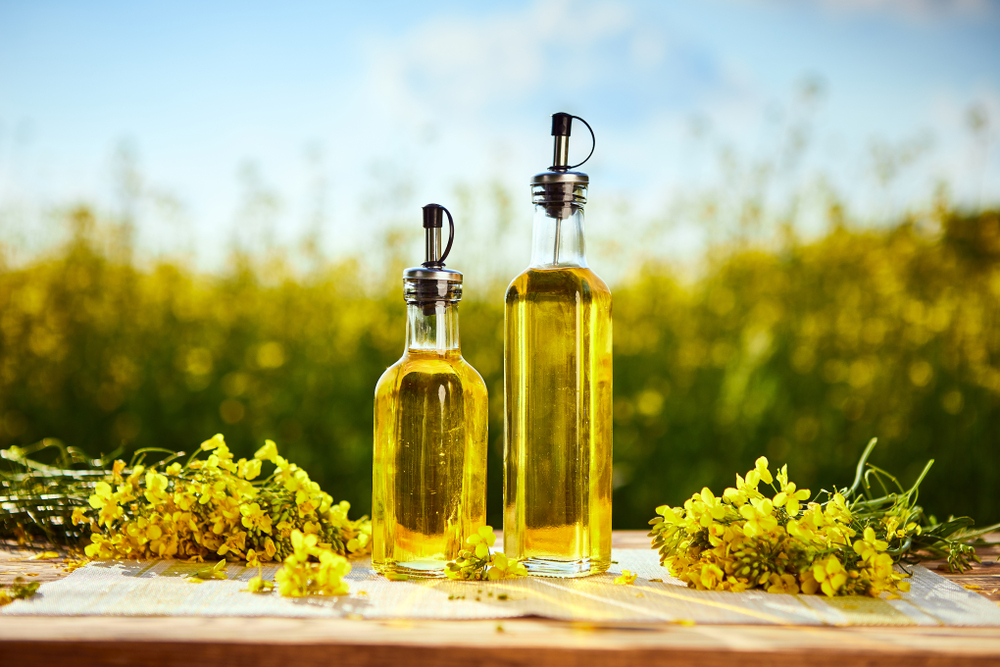The term “Canola”, is derived from the terms "Canada" and "ola" which means oil. Canola oil which is a pure vegetable-based oil is used in several foods and other items. Canola or Brassica napus is one of the most significant oilseed crops in the world. Canadian researchers crossbreed an edible variety of rapeseed plants by eliminating risky substances such as erucic acid and glucosinolates to produce canola.
Although the canola plant resembles the rapeseed plant in appearance, it has different nutrients, and its oil is safe to eat. Since scientists introduced the plant, breeders have evolved numerous varieties of Canola. The production of Canola oil has significantly increased as a result. Most canola crops are genetically modified (GM), which raises the oil's quality and the plant's resistance to herbicides. 95% of the canola cultivated in the US is GM, according to Trusted Source.
What is The Production Process for Canola oil?
According to the Canola Council of Canada, the procedure for converting canola seed into oil is comparable to that of other oilseeds The method goes like this:
Cleaning
The procedure starts with properly washing the canola seeds to get rid of any stems, pods, weed seeds, and other harvest-related debris.
Flaking and warming
The canola seeds are then heated and flaked by machines before the Canola oil is extracted. In grain dryers, the temperature is slightly raised to avoid seed breaking. At first, shattering the cell walls and flaking the seeds to the desired thickness is done. Then they feed them through rollers.
Cooking
The seeds move via a series of heating drums or stacking cookers. The cells are further broken down during this process, and the proper viscosity and moisture levels are attained for the subsequent phases. Additionally, cooking keeps the food from degrading. Cooking is a very important process, if not done it can lower the quality of the oil.
Pressing
The heated flakes are then gently pressed after passing through a series of expellers or pressers. Most of the oil is removed during this process, and the remaining seed is compressed into a dense cake.
Extraction
The extractor is used to extract leftover oil from the crushed cake. In this process, hexane is used as a solvent. The device then separates the oil from the solids and reuses the hexane.
Processing and refinement
The crude oil is refined to increase its flavor, color, and shelf life. Gums, fatty acids, tiny meal particles, and lipids are removed using water and organic acids.
Color pigments can be removed without using bleach through a process called bleaching. The oil is steam-distilled after being passed through a clay filter to get rid of bad smells,
The canola is subsequently processed into a variety of consumer goods or packaged and sold by the makers as Canola oil for cooking.
Is Canola a Safe and Healthy Oil?
Canola oil may have health advantages, and some industry-funded studies even assert that it is the healthiest oil on the market. According to research, Canola is one of the healthiest vegetable oils. Canola oil lowers risk factors for disease and enhances well-being. Good reviews about Canola oil are published in several peer-reviewed journals. Also, Canola industry associations support the facts. According to a book published in 2016, many dietitians think Canola is the healthiest edible oil because of its fatty acid composition and other nutritious qualities. In comparison to other vegetable oils, it also has a low level of saturated fat. According to a 2011 study, consumers may have lipid-lowering effects if they consume more Canola than other oils high in saturated fatty acids. Some researchers propose that canola oil is heart healthy substance.
On the other hand, there are some health hazards associated with Canola, such as those that lead to:
- Inflammation,
- Affected cognition
To get rid of contaminants, Canadian scientists crossed rapeseed to create Canola oil. The final product is produced by manufacturers using solvent extraction, pressing, heating, and refinement.
Canola cooking oil includes a variety of fatty acids, including omega-3 and -6 fatty acids, and is a strong source of vitamins E and K and very beneficial for health which lowers heart risk.
Olive oil, avocado oil, and coconut oil are some Canola substitutes that people can pick from.
Conclusion:
There are many types of oils available in the market for cooking, but canola oil has many benefits when used properly. There are misunderstandings about the advantages and risks of canola oil. Canola oil includes a variety of fats like other oils, but it might have certain excellent health advantages as per recent research.








No comments: